With trust in media under pressure and technology reshaping how information is consumed, what does it take to lead one of the world’s most influential media outlets? The Trailblazers series hosted by the Women in Business Club, a fireside chat with Roula Khalaf — the first female and foreign-born Editor of the Financial Times in its 135-year history — explored the evolving role of journalism, the future of editorial leadership, and the personal and career journey as a global female leader. The conversation was moderated by Siobhan Hartnoll, Co-President of Women in Business Club.
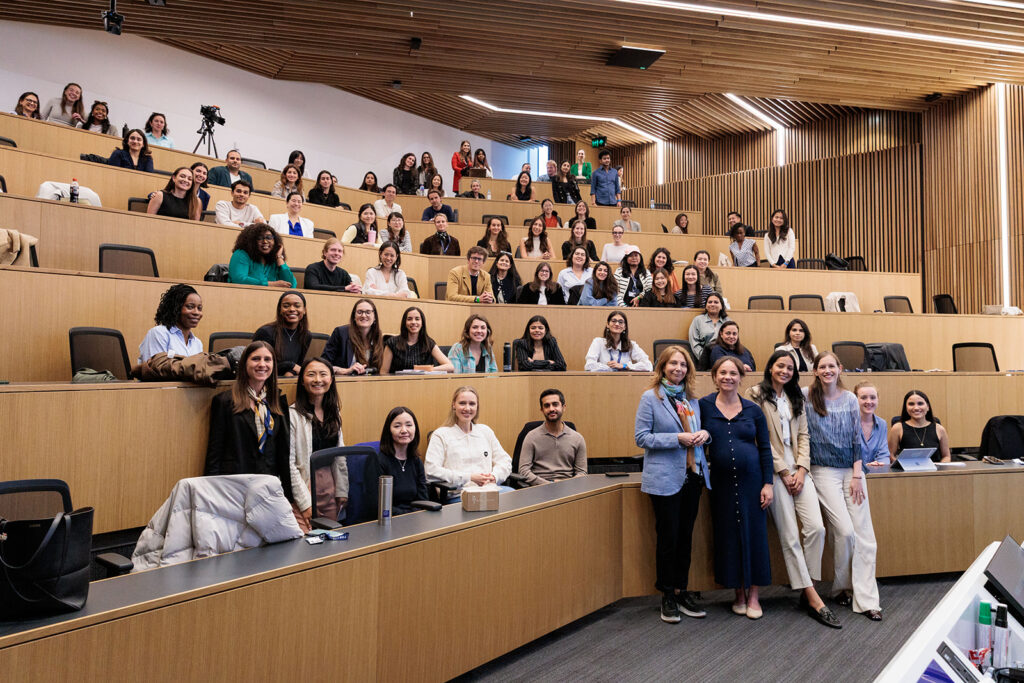
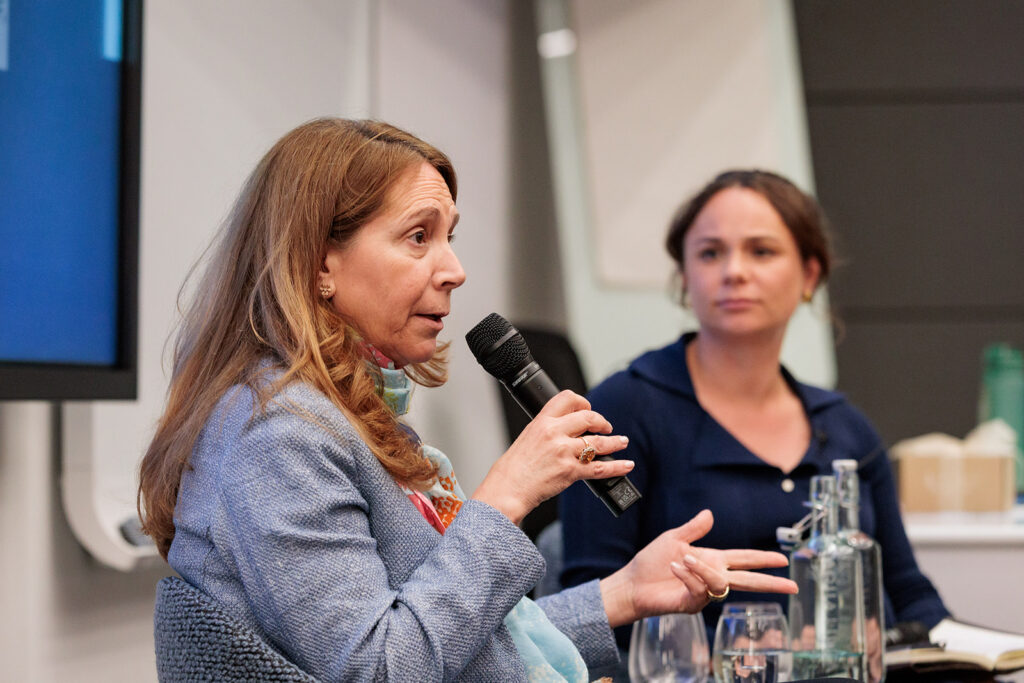
Shaping Stories in a Time of Crisis
Khalaf’s leadership at the FT spans three interconnected roles: making daily editorial judgments, remaining an active journalist, and guiding the long-term direction of the FT as a global media organisation, which has been especially critical in recent years, as global crises and digital transformation redefine journalism’s role in society.
Asked how her identity as both the first woman and the first foreign-born editor has influenced her leadership, Khalaf believes that “the job of the editor is the same, but there are nuances in style and emphasis.” Her approach to journalism is defined by a belief in expansive storytelling: Business journalism must also reflect the social, political, and ethical dimensions of global events, not just the stock market changes. “When there’s a war,” she insisted, “That is the story. Not just the stock market.”
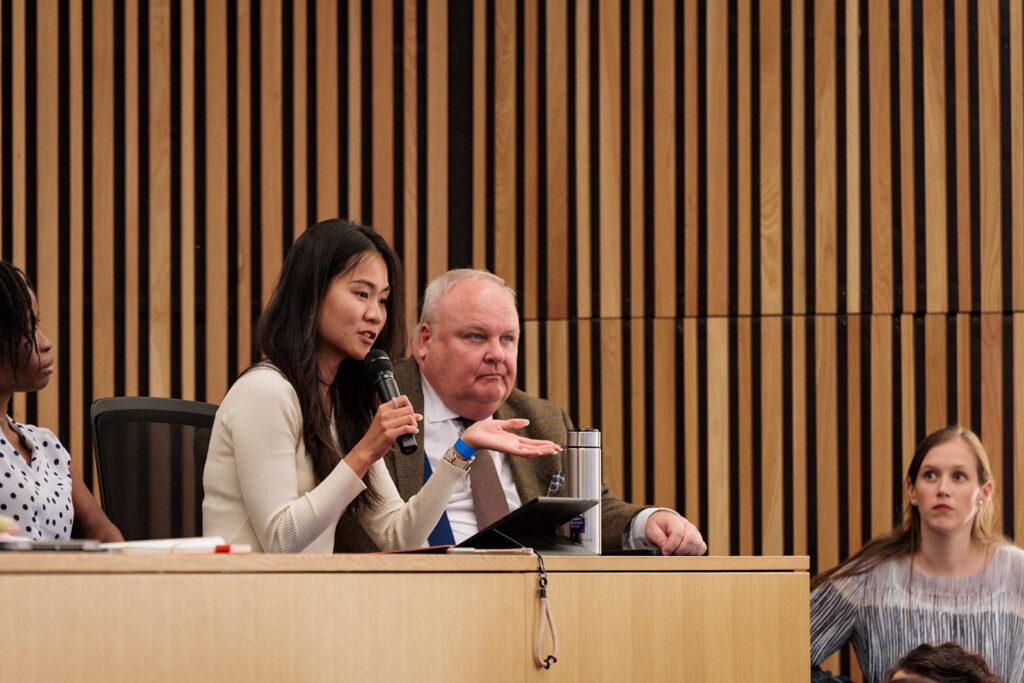
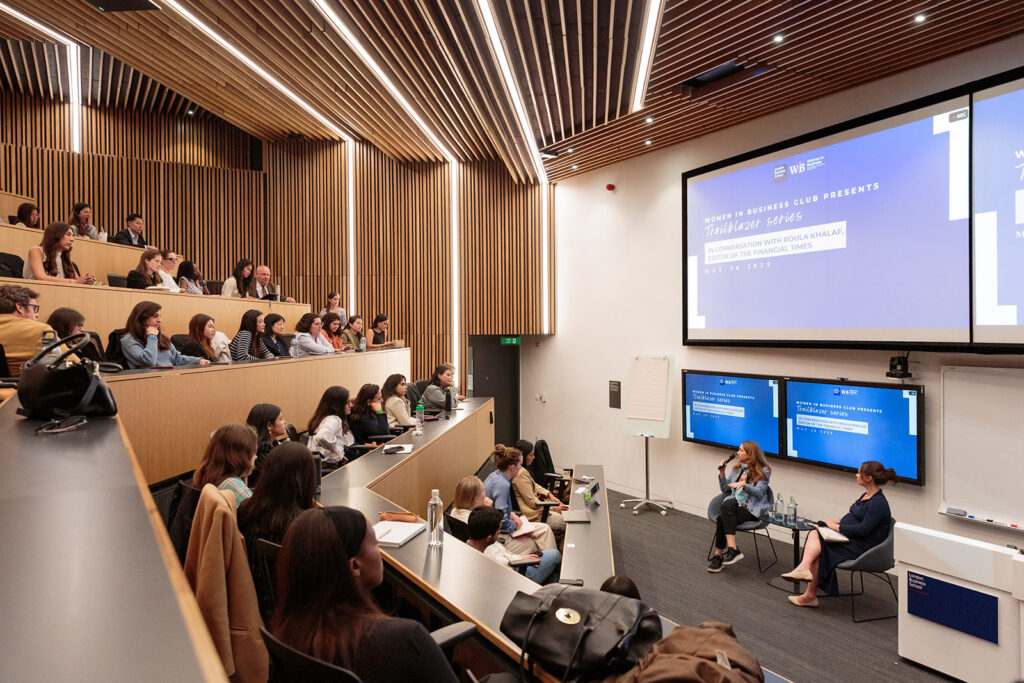
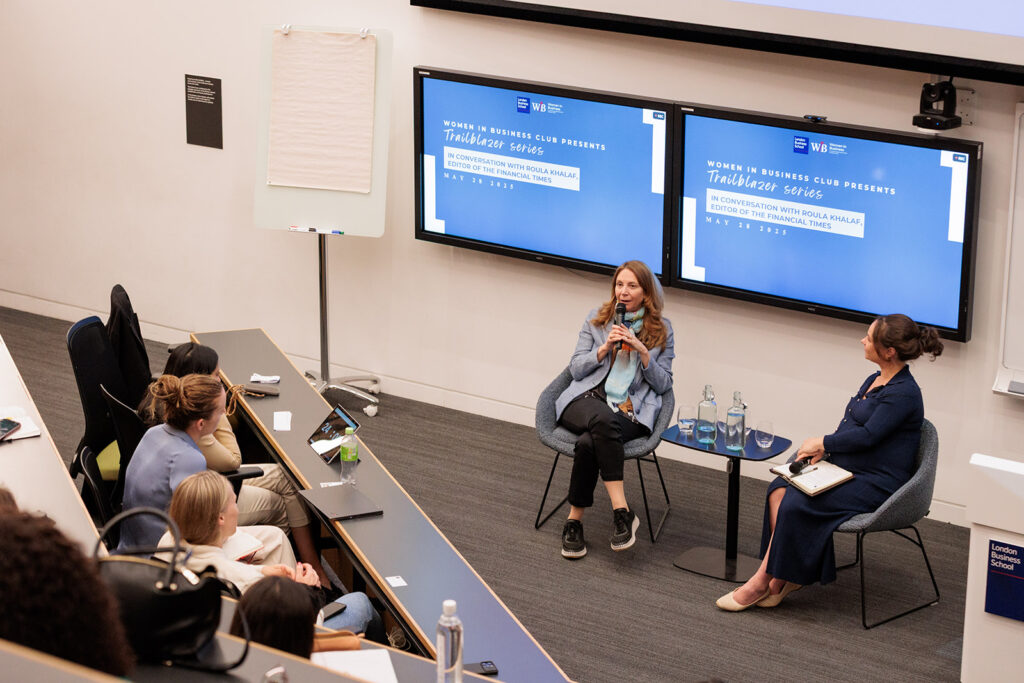
Courage and Integrity in Journalism
In an era where there is increasing media censorship and misinformation, Khalaf emphasised the importance of editorial courage and clarity. “Especially in times like this, you need to be bolder and clearer because the risks now are much greater,” she said.
She emphasized the importance of maintaining strict boundaries between news reporting and opinion writing, while ensuring that journalism remains rooted in facts and evidence. “We analyse, but we do not editorialise in the news section” she explained. But if a public figure makes a demonstrably false statement, the FT is committed to calling it out. Citing an example of U.S. President Donald Trump’s comments about “white genocide” in South Africa, she underlined the importance of factual correction: “We must not normalise lies.”
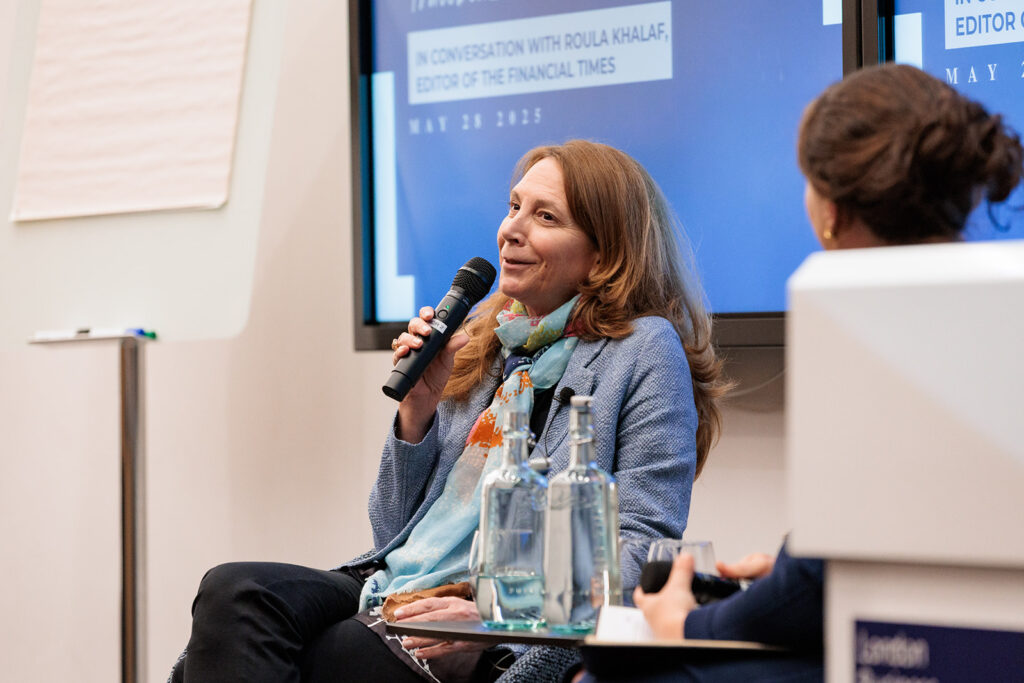
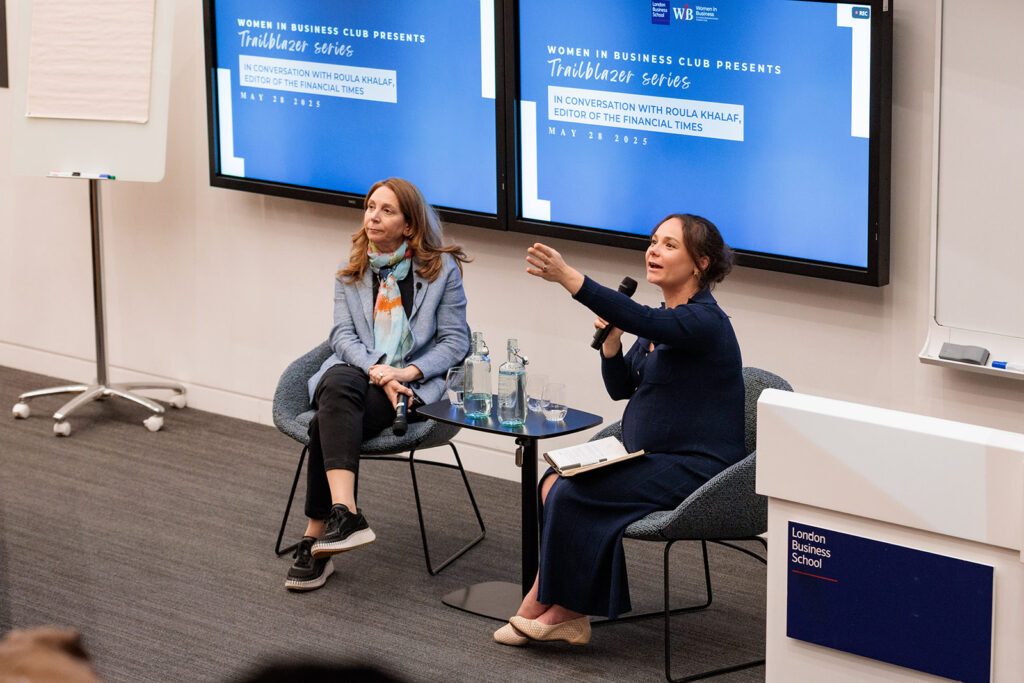
Adapting to the Digital and AI Revolution
With the wave of digital disruption, Khalaf led the FT to continues to strengthen its digital-first, subscription-based model — a transition that began well before many competitors. Today, the organisation remains committed to offering premium journalism at a premium price point, while also piloting lower-cost subscription options to reach wider audiences.
Now, the second wave of disruption — artificial intelligence — is well underway. The FT is already experimenting with AI in its newsroom: its “AskFT” function enables readers to search through the paper’s extensive archives, and AI tools have been used for editorial discovery to unearth complex stories. However, Khalaf made clear that these tools are meant to enhance — not replace — the editorial judgment and ethical responsibilities of journalists.
Curating a Truly Global Story
One of the central challenges Khalaf faces daily is deciding which stories make the front page. In an era of overwhelming information, thoughtful curation is more important than ever. While some topics — such as U.S. politics — inevitably dominate headlines, Khalaf is careful to ensure that less-covered regions and themes also receive attention.
She described the FT’s commitment to global coverage as a point of differentiation and an obligation. By connecting policy decisions in the U.S. to their ripple effects in China, the Middle East, or Africa, the FT offers a holistic view of how global forces intersect, steering the conversation to ensure diversity of region, issue, and perspective instead of over indexing on fast-clicking geopolitical news.
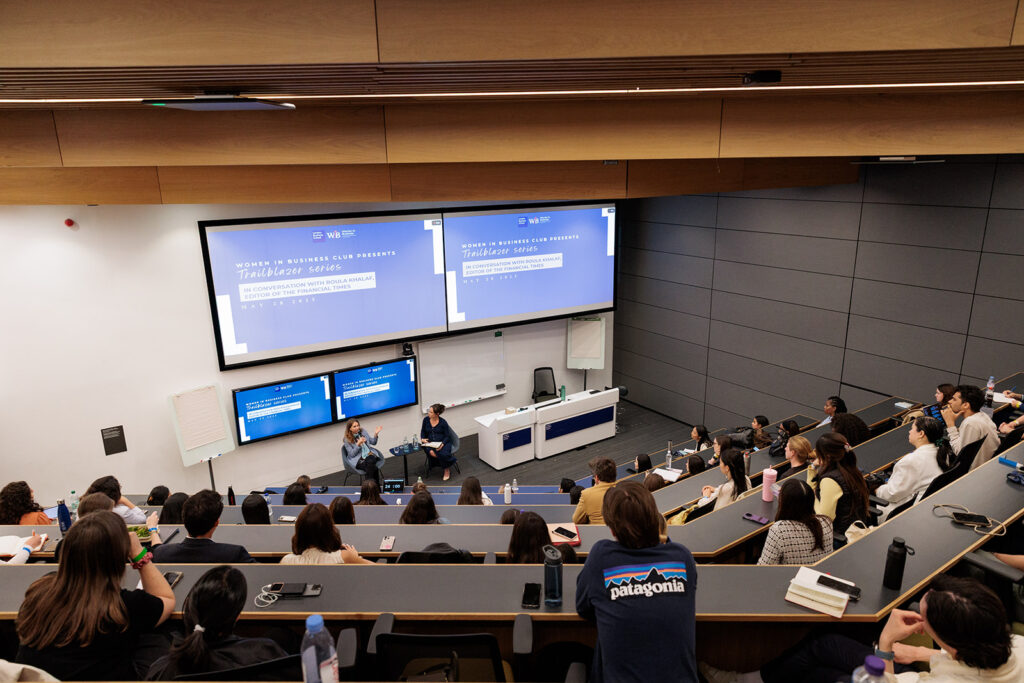
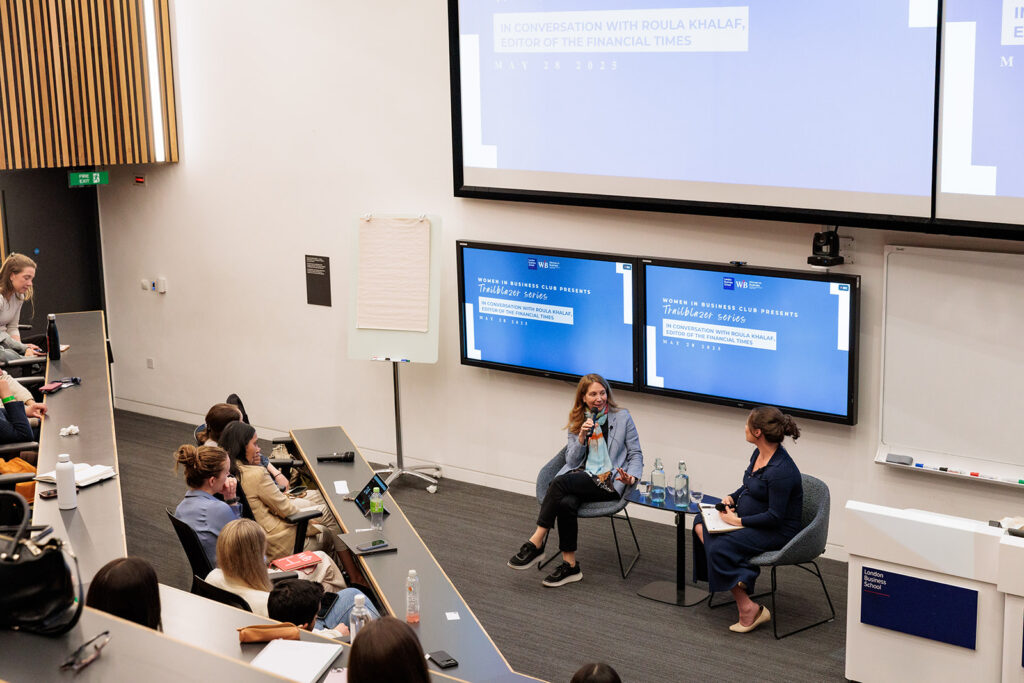
Gender Parity: Looking Back, Looking Forward
Khalaf also reflected on the state of gender parity in journalism and leadership more broadly. While progress has been made over the past two decades, she warned that it remains uneven and vulnerable to reversal — particularly in the current political climate in the U.S., which may influence trends in Europe. “It’s important to keep talking about it,” she urged. “We need to keep moving in the direction of progress.”
When discussing her own path as a leader and a mother, Khalaf rejected the notion of choosing between career and family. Instead, she encouraged flexibility and experimentation, “Women’s careers may follow different timelines. We need to be more open to that.”
She encouraged young professionals, especially women, to experiment with models that work for them — noting that she once worked four days a week to be able to pick up her son from school. “You don’t have to do everything at once,” she advised. “Careers are marathons, not sprints.”
As the conversation ended, Khalaf offered her advice to the next generation of leaders in the room: stay engaged, stay curious, and take the long view. The world is facing a convergence of extraordinary challenges, from global conflict to rapid technological disruption, but these moments are also opportunities for meaningful leadership. Progress is rarely linear and can unfold in unexpected ways. What matters for leaders is showing up with clarity, courage, and a commitment to truth — even when the path forward is not obvious.
Women in Business Club
Women in Business Club offers a dynamic calendar of professional development and career-focused events, designed to empower members for success during recruitment and throughout their careers beyond London Business School. From panel discussions featuring alumni and peers sharing firsthand insights into sector-specific recruitment processes to engaging fireside chats with world-renowned business leaders, our events provide opportunities to learn, connect, and grow as future leaders. Find out more here.
Speakers
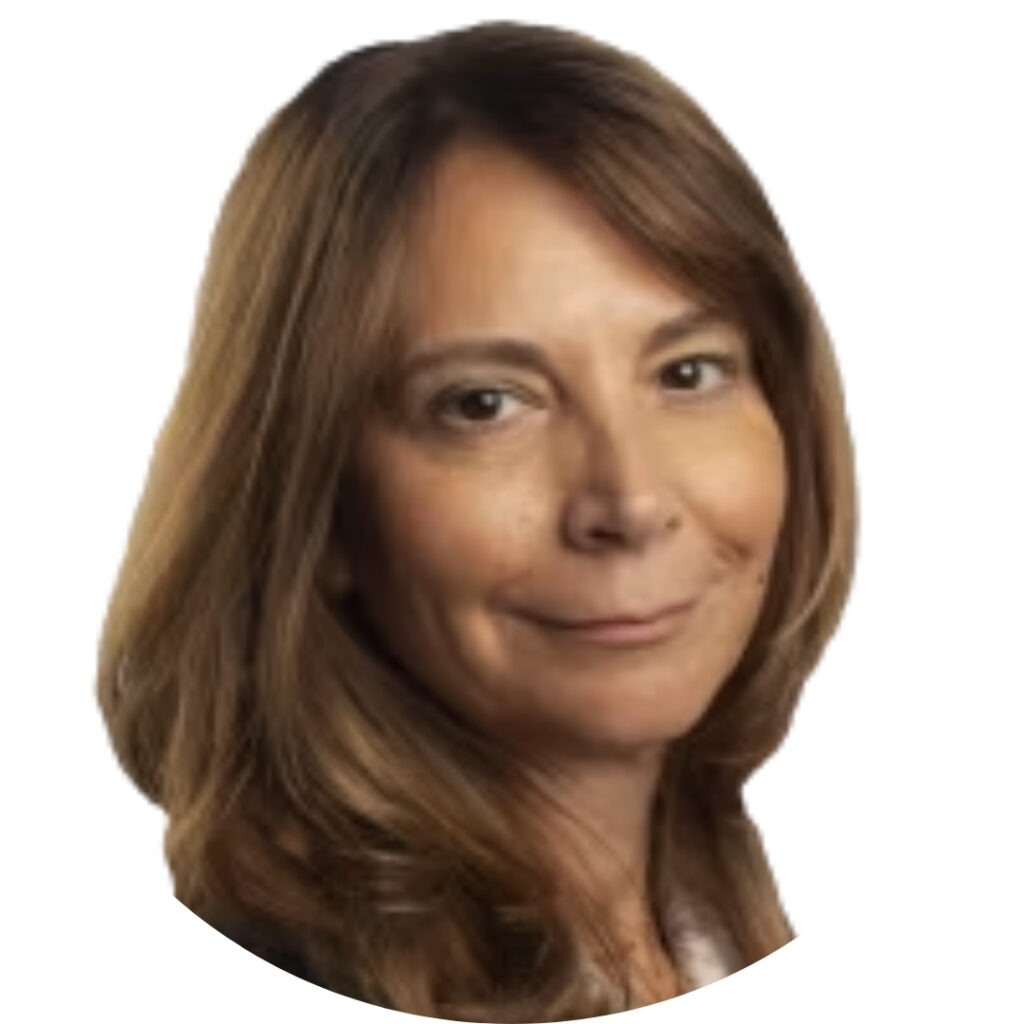
Roula Khalaf is Editor of the Financial Times, appointed in January 2020 following her tenure as Deputy Editor from 2016 to 2020. In her current role, she oversees global editorial strategy and leads one of the world’s most respected business publications.
Since joining the FT in 1995, she has held several senior positions, including Foreign Editor and Middle East Editor, where she led the launch of the FT’s Middle East edition and its coverage of the Arab Spring. She has also overseen the FT’s international network of more than 100 foreign correspondents. Her work has earned numerous accolades, including Foreign Commentator of the Year at the Editorial Intelligence Comment Awards and Feature Story of the Year from the Foreign Press Association for her reporting on Qatar.
Roula previously worked as a staff writer at Forbes in New York. She holds a BA from Syracuse University and a Master’s in International Affairs from Columbia University.

Siobhan Hartnoll is a fintech strategist and MBA candidate at London Business School, where she received the Outstanding Leadership Award.
As Co-President of LBS’s Women in Business Club, she led the student-led gender equity event, the 25th EQUALL Conference. She’s passionate about inclusive leadership, gender equity, and driving impact through technology.
About the writer
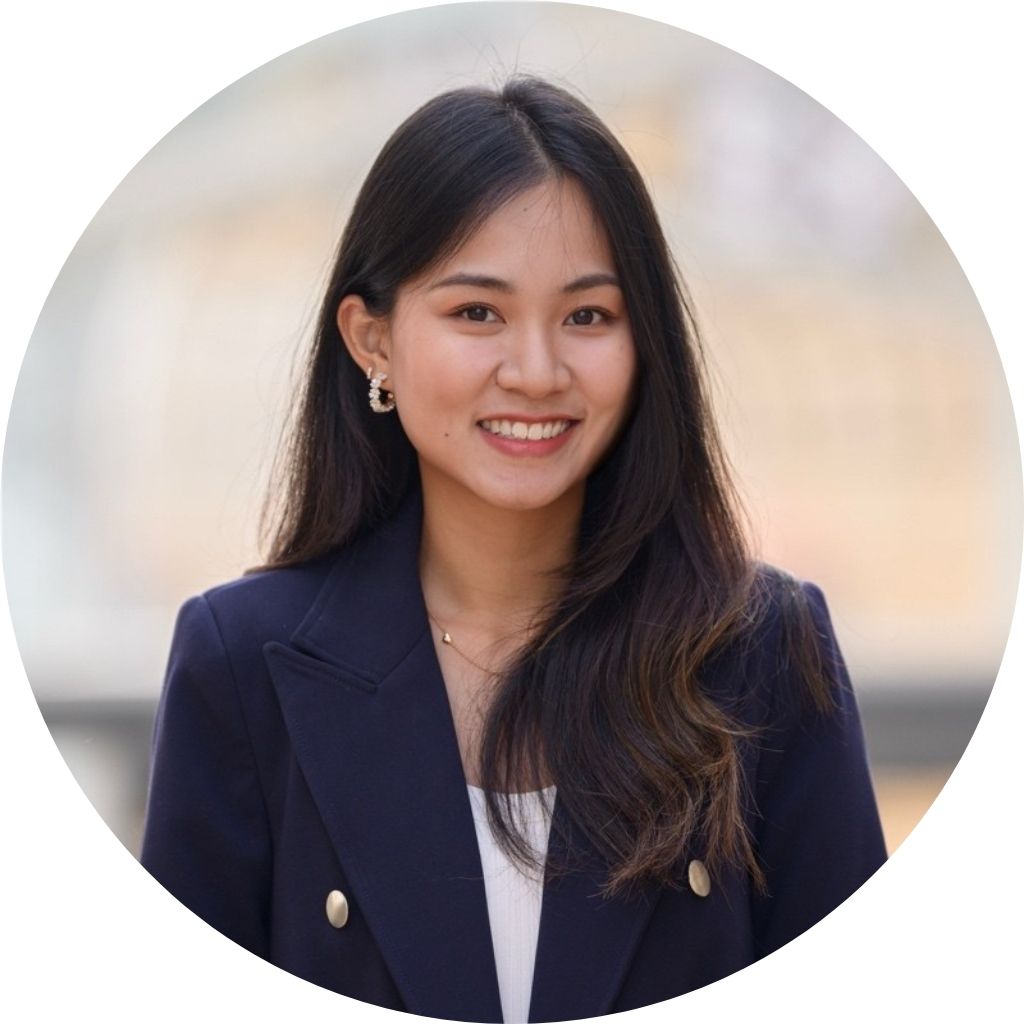
Luise Lin is an MBA 2026 candidate at London Business School and an Outreach and Communication Intern at the Wheeler Institute for Business and Development. Prior to joining London Business School, she worked at Boston Consulting Group as Consultant in Australia, where she advised clients across private and public sectors as well as social enterprises. Luise is passionate about leveraging managerial science, innovative business models, and financial solutions to drive scalable economic development impact in developing regions. She is particularly interested in the intersections of management, policy and social impact, exploring how private sector solutions can contribute to sustainable development.
